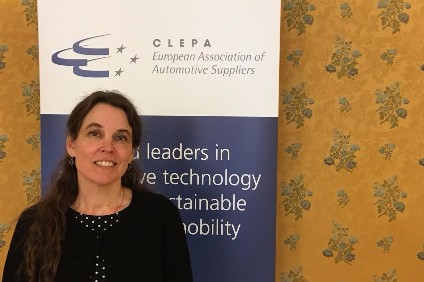 |
|
“I do think some in the industry are looking at the entire dimension of the events with some questions and maybe even some concern” – CLEPA secretary general Sigrid de Vries |
Europe’s automotive supplier association (CLEPA), says the perfect storm surrounding the current semiconductor shortage will continue at least for the time being as manufacturers look to ensure there are as few risks as possible.
CASE megatrend demands have been compounded by the global pandemic, which has seen multiple governments around the world impose severe lockdown measures in a bid to stem the spread of the virus, which continues to wreak economic havoc on global economies.
This has seen a huge surge for consumer electronics as people are using technology for home-based working and leisure pursuits such as gaming consoles in the absence of being able to socialise in more traditional ways.
“I do think some in the industry are looking at the entire dimension of the events with some questions and maybe even some concern,” CLEPA secretary general, Sigrid de Vries told just-auto from Belgium. “It is clear demand will continue rising and everybody wants to make sure there are as few risks as possible. It is not just a question of the number of suppliers; it is also the length and organisation of the supply chain.
“It is a perfect storm, absolutely. There are many things happening at the same time. There is a deep thinking going on in industry at how to look at the future. All the vehicle architecture is concerned – we are seeing such a transformation with the move towards electrification and the changes in the entire set-up in the vehicle that involve semiconductors and micro-electronics.
“Now there is extra pressure put on it and it is really about strategic questions clearly. It is right for policy [makers] to be part of that thinking. We try to investigate what are the main issues and considerations for our sector and see if they can support, if there are framework conditions that can be improved. You are talking about the available skills set in society, support for fundamental research, maybe the need to look at the industrial policy configuration. It is a wide spectrum of questions that need to be addressed.
“We see from the German and French governments doing announcements together – it is clearly at the very highest level in politics and that is understandable – that it is about the strategic way of shaping the economy. Clearly, automotive will have a role if decisions are made about boosting European manufacturing capacity because it is a high-volume as well as an advanced product and many chips are needed.
“That it has attention is right, but the then the next step is going beyond the visionary statements to bring it down to ground level.”
The CLEPA chief noted Europe had previously enjoyed far higher manufacturing of semiconductors, but that this had now overwhelmingly shifted to Asia, where she also drew a parallel with the situation in the battery sector.
European governments are ploughing enormous amounts of investment into bringing such technologies closer to home and some such as the UK are even mandating a ban on ICE cars by 2030, which can only hasten the need for huge battery requirements.
“I think policy can help create a market and combine R&D efforts where the risks are too great for one company to carry,” added de Vries. “In the end, there needs to be a real business case, a longer market perspective for the investments to deliver returns.”

